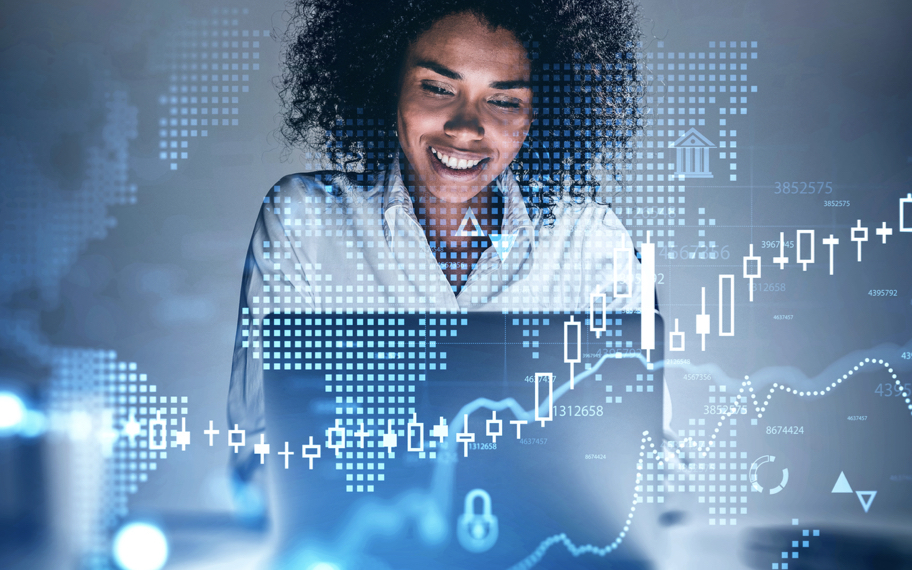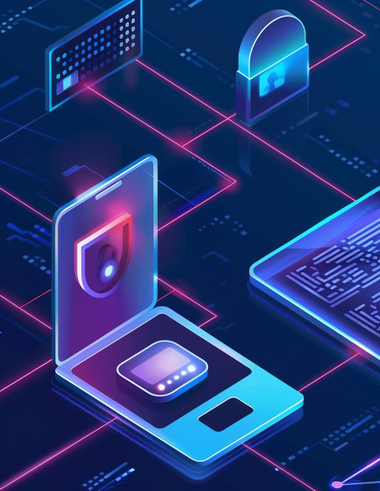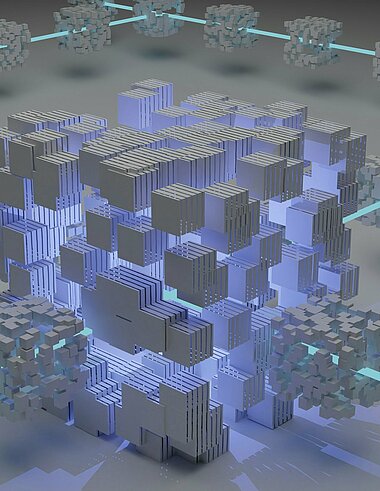Blockchain and AI are increasingly merging - and Berlin is the melting pot.
Blockchain and artificial intelligence (AI) are currently highly disruptive technologies. Increasingly, companies are asking how these dataset-based technology approaches can be combined and benefit from each other. Although each is different in terms of structure and functionality, they can complement each other and make each other more efficient.
The potential of this connection is immense and applicable in many areas. Not only in the FinTech industry, the traditional innovation field of blockchains, but also in the energy industry, the "Internet of Things" (IoT), digital healthcare, transportation and logistics, and other areas where applications of blockchain are being explored.
"Blockchain is moving beyond cryptocurrency, and it's worth paying attention - especially as successful prototypes show that blockchain, also known as distributed ledger technology, will be transformative." Julie Sweet - CEO Accenture (Source: Fortune)
The brain and the ledger
Both blockchain and AI reflect technologies that are increasingly pervasive in business and society and are therefore gaining increased influence. Especially against a backdrop of increasing computing complexity, the interlocking of these technologies will become more likely. Described in very simplified terms, blockchains would be comparable to ledgers in which extensive and complex data sets are stored and interconnected. An AI would then figuratively be the brain that analyzes this data, works with it and draws conclusions based on it.
On the one hand, blockchain technology can make applications more secure. Especially when storing personal and sensitive data that can only be used with verification, as well as more transparent through the possibility of tracking. Errors and fraudulent data sets can thus be prevented from occurring in applications in the first place or removed. Blockchains can record vast amounts of data and transactions created or analyzed by an AI, for example, and thus enable decentralized coordination platforms and marketplaces. Second, they can in turn be used, for example, for AI algorithms that enable rapid and automatic validation of data, assets, and values between stakeholders. This would allow captured customer inside data to be used to create automated marketing through artificial intelligence, for example.
Similarly, it would be possible to individually set the terms of who can access our data, for what purpose, and at what price in a smart contract. This would allow individuals to monetize their product data.
"Blockchains lower search costs and cause a kind of decomposition that allows you to create markets of entities that are separated horizontally and vertically. You didn't have that before. Instead, you had a kind of monolith that did everything" Vitalik Buterin - Co-founder of Ethereum (Source: Blockchain Revolution)
AI technology, in turn, can analyze blockchain datasets, create new classifications and patterns, consequently evolve their underlying architecture and thus increase blockchain efficiency. Moreover, mentioned productivity can be increased by an AI faster than merely possible by human hands. As a result, better results are achieved and by combining different AI systems, security is equally increased. Additionally, recording AI data makes this technology more understandable and coherent. As a result, AI can also use blockchain datasets as training data.
The vision: an interplay of blockchain, IoT and AI
Many experts agree that the combination of these three technologies will lead to an even greater transformation of many industries. In addition to transparency and data security thanks to blockchain on the one hand and continuous process enhancement and optimization thanks to AI on the other, automation processes and user-friendliness would also come into play with the IoT. Especially with a view to the development towards a smart city, production and infrastructure systems could be revolutionized. The EU Blockchain Forum states in a report:
"For citizens, blockchain, together with AI and IoT, could contribute to a better quality of life, including through safer and better-designed urban environments. For example, they could help cities better prepare for and manage emergencies such as fires or extreme weather conditions by combining AI-based monitoring and predictive models combined with autonomous emergency response via networked devices." (Source: EU Blockchain Forum, p. 19)
Benefits could likewise arise in areas such as healthcare, transportation, and other areas of everyday life. Nevertheless, experts also agree that, despite all the opportunities, the interoperability of the technologies remains one of the key challenges.
Berlin is innovation driver and rallying point
But while the interplay of blockchain, AI and IoT still seems to be a thing of the future, Berlin is already setting itself up broadly as an innovative hotspot and acting as a driver of blockchain and AI (as well as IoT).
"In the last two years, the number of blockchain companies founded or having a presence in Berlin has almost doubled. It is a city that has perfect conditions to become a global blockchain hotspot." Ricardo Garcia, co-founder of BerChain (Source: Smart City Berlin)
Some developers and vendors in Berlin offer comprehensive consulting services, implementation and development for business applications based on blockchain technology and AI and are constantly expanding them.
One company, for example, is Passbase. It offers secure identity verification using AI applications and facial recognition. Users are in control of their own data. The company, which is headquartered in Berlin, also offers AML-compliant (anti-money laundering) tools to combat money laundering, which are now used in more than just the financial industry.
A decentralized machine learning platform is being developed by Fetch.ai.The network connects people, computers and services and enables data exchange and collaboration, for example for financial trading, energy network optimization or the music industry.
The Berlin-based company Ocean Protocol is using blockchain and AI technology to build a decentralized marketplace where data is exchanged and traded securely and transparently. It connects producers and users of relevant data, giving developers unrestricted access to develop their products. In doing so, the technologies as well as protocols are used beneficially to achieve fair outcomes for data users.
Artificial intelligence can ultimately benefit many blockchain platforms that run machine learning algorithms and data tracking, stored on decentralized storage systems. This data comes from smart connected products and environments such as IoT devices, swarm robots, smart cities, buildings and vehicles. Healthcare, distribution networks, mobile apps, retail, real estate and finance are among the industries that will benefit from the partnership of these technologies.





